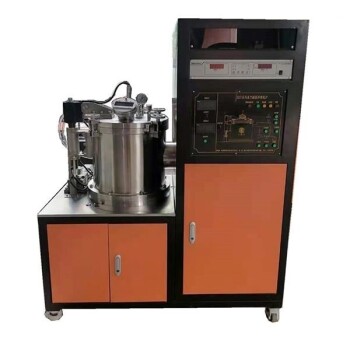The best type of vacuum pump depends on the specific application and requirements. For general laboratory use, oil-free vacuum pumps are often preferred due to their low maintenance, portability, and resistance to noncorrosive solvents. These pumps are suitable for tasks like extraction and membrane filtration. For ultrahigh vacuum applications, such as analytical instrumentation, turbomolecular vacuum pumps are ideal due to their ability to achieve extremely low pressures. Other applications, like vacuum packaging or drying, may require different types of pumps based on the pressure and flow rate needed. Ultimately, the choice should align with the operational demands and environmental conditions of the task.
Key Points Explained:

-
Application-Specific Requirements:
- The best vacuum pump depends on the specific task. For example, a lab vacuum pump used in analytical instrumentation may require ultrahigh vacuum capabilities, while a pump for vacuum packaging may prioritize flow rate and durability.
-
Oil-Free Vacuum Pumps:
- These pumps are ideal for laboratory environments due to their low maintenance and resistance to noncorrosive solvents. They are commonly used for tasks like extraction and membrane filtration. Their portability makes them versatile for various lab settings.
-
Turbomolecular Vacuum Pumps:
- These pumps are designed for ultrahigh vacuum applications, such as those found in analytical instrumentation or laboratory analysis. They are capable of achieving extremely low pressures, making them essential for precision tasks.
-
Other Applications:
- For tasks like vacuum packaging, pick and place machines, or drying components, the pump choice will depend on the required pressure and flow rate. These applications may not need the ultrahigh vacuum capabilities of turbomolecular pumps but will benefit from robust and reliable designs.
-
Maintenance and Environmental Considerations:
- Oil-free pumps reduce maintenance needs and are environmentally friendly, as they do not require oil changes or produce oil waste. This makes them suitable for labs aiming to minimize downtime and environmental impact.
-
Portability and Chemical Resistance:
- Portable oil-free pumps are advantageous for labs that need to move equipment between locations. Their chemical resistance ensures they can handle a variety of solvents without degradation, enhancing their versatility.
By evaluating these factors, you can select the most suitable vacuum pump for your specific needs, ensuring optimal performance and efficiency in your laboratory or industrial application.
Summary Table:
| Application | Recommended Pump Type | Key Features |
|---|---|---|
| General Laboratory Use | Oil-Free Vacuum Pumps | Low maintenance, portable, resistant to noncorrosive solvents |
| Ultrahigh Vacuum Applications | Turbomolecular Vacuum Pumps | Achieves extremely low pressures, ideal for analytical instrumentation |
| Vacuum Packaging/Drying | Application-Specific Pumps | Focus on pressure and flow rate requirements |
| Maintenance & Environmental | Oil-Free Pumps | Eco-friendly, no oil changes or waste, reduces downtime |
| Portability & Chemical Handling | Oil-Free Pumps | Portable, chemical-resistant, versatile for various lab settings |
Need help choosing the perfect vacuum pump? Contact our experts today for personalized advice!








